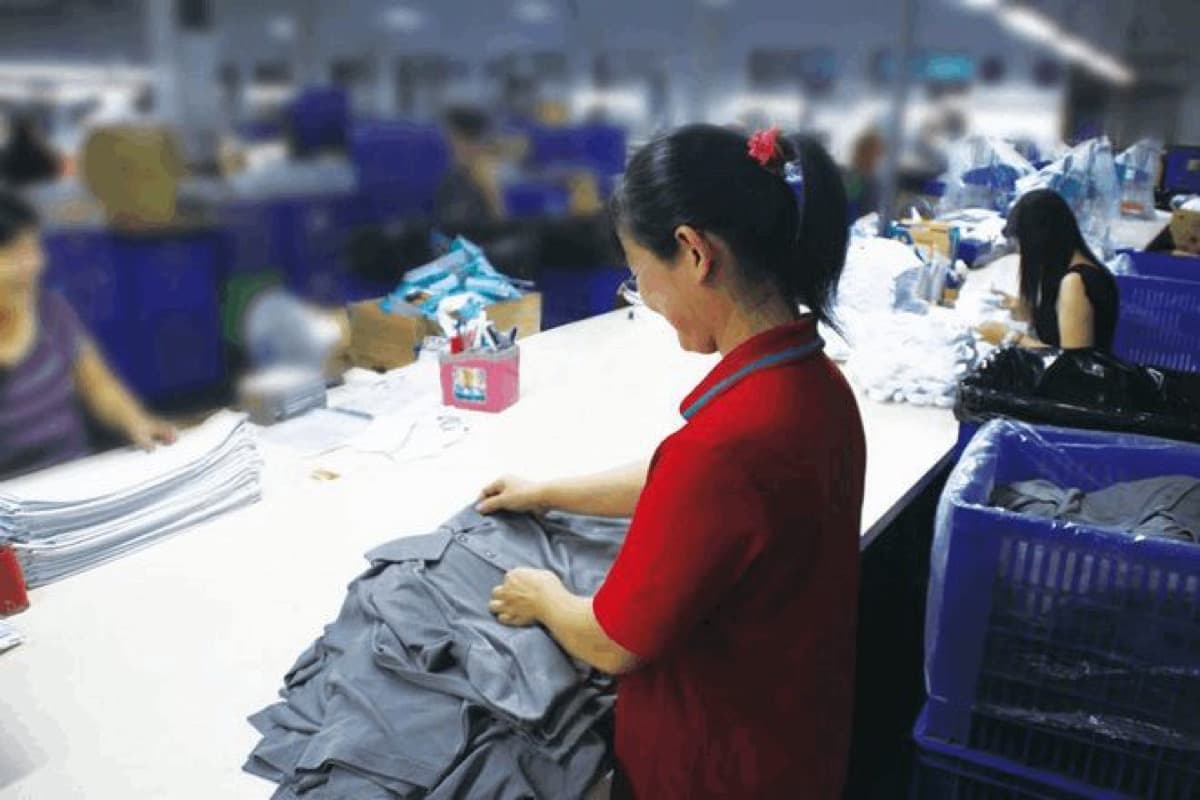The Root Cause of The Global Semiconductor Shortage and Its Impactact on the Supply Chain
Semiconductors are crucial materials for technology companies. The properties of these materials make them suitable for use in a wide variety of devices and components, photosensors, transistors, microcontrollers, and diodes. Semiconductors can conduct electricity under controlled conditions due to their conductivity which ranges between conductors and insulators. Typically, the resistance of semiconductors reduces with an increase in temperature and vice-versa. The supply of semiconductors significantly influences the rate of production in technology industries since a majority of products require these integrated circuits to operate.
Causes of the global semiconductor shortage
Global semiconductor shortage usually arises when the demand for semiconductors exceeds the supply. The current global semiconductor shortage is mainly a result of the Covid-19 outbreak. Initially, the global market effectively balanced the demand, production, and supply of semiconductors. However, the emergence of the pandemic saw a significant change in the global market condition, with policymakers facing a shock in both the demand and supply. Covid-19 caused a downturn in the technology market due to a decline in the demand for semiconductors. As a result, many industries closed down while some downsized their workforce to stay afloat.
Most technology industries did not feel the impact of the decline in the production of semiconductors at the start of the pandemic. This is because the global market encountered a low demand for semiconductors. However, the effect of the decline in semi-conductor production started materializing during the pandemic as the demand for electronics increased following the rise in the “work from home” culture. Many people working from home or staying at home considered purchasing communication equipment including computers, laptops, routers, and webcams, which use semiconductors. The rising demand for communication devices forced companies to embark on production to help increase the supply of the products. Consequently, the demand for semiconductors started increasing as more companies resumed operations to produce more communication devices. The global semiconductors reserves depleted since the rate of production was lower than the demand thus causing the shortage.
Another cause of the global semiconductor shortage was the China-US trade war. The war saw the United States restrict the export of crucial software and technology needed by semiconductor manufacturing companies based in China. In 2020, the US government declared its intention to control the export of semiconductors to China. One of the leading Chinese companies that suffered from this restriction was the Semiconductor Manufacturing International Corporation (SMIC). The US government required all the American companies associated with the production of semiconductor chips to acquire licenses to offer their technology to the SMIC. The Industry and Security Bureau spokesman defended the move stating that the United States was constantly monitoring and evaluating any possible threats to the country’s foreign policy interests and national security.
SMIC usually depended on the companies based in the United States for the supply of materials used to manufacture semiconductors. The company was incapable of making intricate chips that could support sophisticated applications. Therefore, a restriction that would deny the company access to the crucial semiconductor materials spelled doom for the advanced chip maker. SMIC reacted to the US restriction by declining to supply companies associated with America. As a result, companies resorted to sourcing semiconductors from other manufacturers like Samsung. This resulted in a global semiconductor shortage since a majority of the other manufacturers were already producing the semiconductors at maximum capacity.
The outbreak of fire at the Renesas Electronics Corporation based in Tokyo, Japan, in March 2021, also contributed to the global semiconductor shortage. Renesas Electronics Corporation is a Japanese company that specializes in the manufacture of advanced semiconductor solutions. The company experienced a fire outbreak in the N3 Building at its Naka Factory, which damaged some of the utility equipment. The fire was a result of electrical overload, which destroyed 23 machines.
The disaster caused the company to lose its production capacity for about two months. The halt in production adversely affected many global automakers like Honda Motor and Nissan Motor, who depended on the company for semiconductors’ supply. Some companies were forced to cut production due to the shortage in supply. Renesas Electronics Corporation controls almost a third of the world market share dealing with car microcontroller chips. Thus, the temporary halt in the production of semiconductors in 2020 can be partly attributed to the current global semiconductor shortage.
Taiwan suffered a ravaging drought earlier this year. This was unexpected since the country had been experiencing frequent rains owing to its tropical and subtropical climate. Taiwan did not experience any typhoons in the previous year thereby receiving little rain that plunged the country into a severe drought. The water levels in most of the country’s water reservoirs dropped significantly, adversely affecting the semiconductors manufacturing industries.
Taiwan is one of the largest producers of semiconductors globally. The country’s semiconductor industry is worth $100bn. This industry depends heavily on the water stored in reservoirs. The drought saw the primary water sources like Baoshan Reservoir experience a significant drop in the water levels. The water shortage severely compromised the production of semiconductors since the industries producing these chips could not access sufficient amounts of ultra-pure water required to clean wafers. Many semiconductor industries were forced to shut down, consequently causing the global semiconductor shortage.
Impact of Semiconductor shortage on the Supply Chain
Many companies depend on semiconductors to make their products. Semiconductors play an important role in the production of various technologies such as CPUs, GPUs, and RAM. The impact of semi-conductor shortage can extend beyond the manufacturing of computers to other areas. The following are some of the areas that could be affected by the semiconductor shortage;
- Automotive industry: The automotive industry depends on semiconductors, specifically in the making of car components including infotainment systems, driver assistance systems, digital speedometers, and computerized management of engines. The emergence of the Covid-19 pandemic resulted in a drop in auto sales by 50% in the United States, 80% in Europe, and 70% in China. The drop in the demand for vehicles prompted automotive manufacturers to reduce their demand for semiconductors.
However, the lifting of the Covid-19 restrictions saw a rising demand for vehicles, which the automotive industry has to deal with. The shortage of semiconductors has restricted the automotive industry from producing the adequate number of vehicles needed to meet the increasing demand for new cars.
- Personal computing devices: The demand for personal computing devices increased significantly during the lockdown. Many people resorted to working, studying, and interacting remotely. The sudden exponential shift to online operation increased the demand for computing devices to facilitate communication and sharing of information. The surge in the demand for computing devices, coupled with the limited supply of semiconductors, overwhelmed the supply capacity of the manufacturers of computing equipment. This resulted in excessive pressure on the supply chain.
- Consumer goods: The semiconductor shortage has also affected the fast-moving consumer goods (FMCG). These goods include non-durable products such as dry goods, over-the-counter drugs, toiletries, packaged foods, candies, and beverages. Many companies depend on semiconductors to facilitate the production of FMCG. Electronic devices like computers used by production facilities are usually made of semiconductor devices that aid in the processing of fast-moving consumer goods.
The global shortage of semiconductors resulted in an increase in the prices of electronic and computing equipment due to the high demand. This raised the cost of production for many companies that depended heavily on computing equipment. As a result, some companies dealing with fast-moving consumer goods had to consider downsizing production to minimize losses. This adversely affected the supply of FMCG.
How Tetra Inspection Can Help
Semiconductors usually need to undergo quality inspection before distribution to the consumers. The quality inspection typically ensures that any semiconductor reaching the market meets the quality standards stipulated in the quality control blueprints. Several companies offer quality inspection services for semiconductors. One of the leading quality inspection services providers across the world is Tetra Inspection. The company was founded in 2018 and is based in China. Tetra Inspection offers high-end quality control services that are tailored to meet the varying needs of its customers at affordable costs. The company’s founders and management team have an operations background, with valid records of Quality Control and Quality Assurance management from various quality inspection companies.
Tetra Inspection offers a variety of inspection services including product inspection and supplier audit services. The product inspection service offered by this company includes Pre-shipment Inspection, Initial-production Check, during production inspection, and container loading check Check. The supplier audit services include Social Audit, Supplier Verification Audit, and Factory Audit. Tetra Inspection also provides other inspection services including SASO certificate, Amazon FBA Inspection, and Pre-customs Clearance Inspection.
Tetra Inspection can help manufacturers discover and correct any prevailing defect at the production stage, which can help them deliver high-quality products. Tetra inspectors can also help manufacturers minimize costs and losses by identifying the invisible defects early enough to avoid costly reworks. Subjecting products to quality inspection can help companies protect their reputation, which can help them expand and maintain their customer base. Additionally, Tetra Inspection can help avoid delays by reducing conflict between manufacturers and customers, thus improving relationships.
Get in touch with us to learn how we can work together.
Tetra Inspection
Quality control experts at Tetra Inspection, helping businesses protect their supply chains with reliable inspection services across 45+ countries worldwide.
Need Help With This?
Our inspectors handle this across 45+ countries with 48-hour scheduling.
Get Inspection Insights
Monthly quality tips and industry data.



